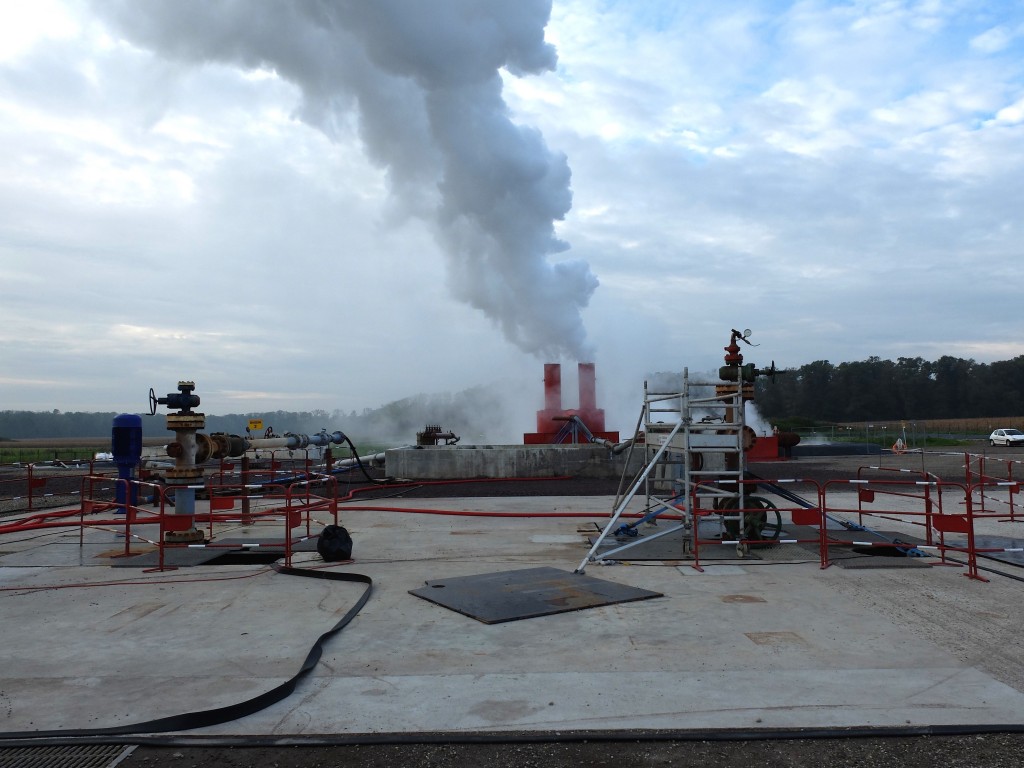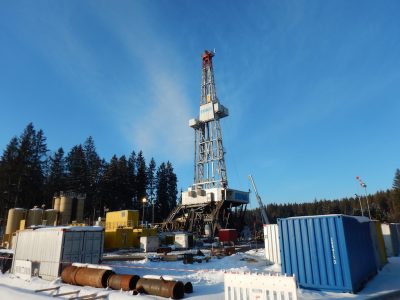Rittershoffen project in France to deliver heat for industrial use by early 2016
Électricite de Strasbourg announces that it will start operation of a heating plant from wells at Rittershoffen, Alsace, France in the spring of 2016, delivering heat to industrial customer Roquette Frères.
In the fall of 2015 I had the chance to visit the site of the Rittershofen project near Strasbourg in France. A geothermal heating project, it is to supply heat to Roquette Frères, a starch producer and a biorefinery, transforming plant raw materials : corn, wheat, potato, peas & microalgae.
The Group of Électricite de Strasbourg (ES), the local utility in the city of Strasbourg in Alsace, France has been developing this project on behalf of Roquette Frères starting in 2011.
ES via its subsidiary ÉS Géothermie, has identified a geothermal heat source at 3000 meters deep in Rittershoffen, which was much more accessible to a location in Beinheim nearby where one would have had to drill to a depth of 6,000 meters.
After the success of the two wells, which confirmed the temperature forecasts and flow needed for its industrial development, the project entered in the connection phase between the pumping station/ reinjection in Rittershoffen, and the plant in Beinheim with the installation of 15 km pipes, comprising a tube and a return pipe buried at a depth of 1.5 meters. This work took a period of 10 months with a cost of about EUR15 million ($17 million) and has been a major and most sophisticated operation.
The laying of 15 km pipeline required going under the highway A35 and under the railway line of Strasbourg-Lauterbourg. This technique consists in passing the pipe without creating trenches in the manner of building a tunnel.
The location of the pipes going from Rittershoffen through the towns of Hatten, Seltz, Kesseldorf and Beinheim, was selected after several public consultation meetings and the recommendations of an independent environmental impact assessment. Archaeological excavations were also carried out by teams from the PAIR (the Rhenish Interdepartmental Archeological Pole), revealing remarkable Neolithic remains, now under consideration in Sélestat conservation center.
For technical perfectly controlled and secure execution were selected two providers Alsatian skills and certified experience: The SOGECA company,Société Générale de Canalisation, in charge of excavation and laying of pipes, with the completion of the welds between each element to ensure a perfect seal of the pipes; and CEMS Drilling Company, for the realization of the crossing of two specific works by sinking the route.
Setting technical service the heating network is scheduled for late this year, with commercial operation in spring 2016.
Source: Zone Bourse


















